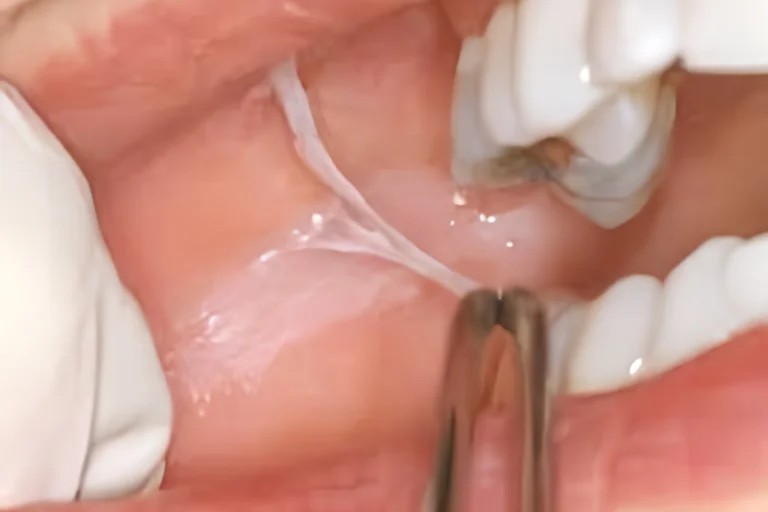
- Home
- About
- Our Team
- Services
- Postoperative Care
- Smile Gallery
- Medical Tourism
- Blog
- Offers
- Contact Us
- Home
- About
- Our Team
- Services
- Postoperative Care
- Smile Gallery
- Medical Tourism
- Blog
- Offers
- Contact Us

Have you ever noticed that the inside of your mouth is peeling and wondered why? This frequent condition can be upsetting and uncomfortable, but recognizing the potential reasons will help you treat it more effectively.
Our mouths are complex structures with several tissues and cells that various factors may influence. Peeling may be a symptom of underlying health problems or merely a result of particular habits or situations. It is critical to pay attention to this symptom and get medical assistance if needed.
Peeling on the inside of your mouth might be caused by several things, from mild irritations to severe disorders. Understanding the various causes of this problem allows you to take action to reduce discomfort and encourage recovery. Let’s look at some frequent reasons for peeling in the mouth and how to treat them.
Skin peeling inside the mouth is the shedding or scraping of the tissue that lines the oral cavity, known as the oral mucosa.
This occurrence can arise for a variety of reasons, including irritation from hot or acidic meals, forceful teeth cleaning, dental appliances, or underlying illnesses such as viral infections, allergies, autoimmune disorders, and, in rare cases, oral cancer.
Understanding the reasons for the symptoms is essential for differentiating between normal shedding and severe health issues and taking proper action if necessary.
Skin peeling inside the mouth can be normal or severe, depending on the root cause and symptoms.
In many situations, this is usually caused by the natural shedding of the oral mucosa, which is similar to shedding skin elsewhere on the body.
However, if it is followed by additional symptoms such as discomfort, swelling, bleeding, or chronic irritation, it may suggest an underlying problem that needs medical attention. Check the issue and get treatment if you are worried about the peeling persisting or worsening.
Skin peeling inside the mouth can be caused by several reasons, including:
Mechanical irritation: Aggressive teeth brushing, dental equipment, or sharp foods can irritate the sensitive oral mucosa, causing peeling.
Chemical irritation: Hot, spicy, or acidic meals and beverages can irritate the mouth’s lining, causing it to peel.
Dry mouth: When there is insufficient saliva production, the oral mucosa becomes dry and peels easily.
Infections: Viral infections, such as oral herpes (cold sores) or hand-foot-and-mouth disease, can cause peeling of the oral mucosa as part of the body’s response to infection.
Allergic reactions: Certain meals, drugs, or oral care products might trigger irritation and peeling in the mouth.
Autoimmune disorders: Oral lichen planus and pemphigus vulgaris are both conditions that can cause the immune system to begin attacking the oral mucosa, which causes peeling.
Trauma: Trauma to the mouth, such as accidental biting, burns, or dental treatments, can cause peeling of the oral tissue.
Nutritional deficiencies: A lack of crucial nutrients such as vitamin C or B vitamins can impair the health of the oral mucosa, causing peeling.
The root cause of skin peeling inside the mouth determines what is the proper treatment. Here are some common approaches:
It is essential to seek the advice of a healthcare expert and avoid self-diagnosis and self-treatment, especially if the signs are persistent or severe.
Skin peeling inside the mouth can easily be prevented. Maintaining proper dental hygiene and making lifestyle changes to decrease irritation and inflammation of the oral mucosa are the keys.
Finally, peeling within your mouth might be caused by a number of conditions, including dehydration, stress, or certain medical disorders. It is essential to keep hydrated, practice excellent oral hygiene, and seek medical attention if the peeling continues or is accompanied by other symptoms. Remember that early identification and good treatment are essential for effectively dealing with any oral health issues.
Sloughing in the mouth typically results from irritants such as hot foods or harsh chemicals found in some oral care products. Infections like candidiasis (oral thrush) and autoimmune disorders can also lead to sloughing of oral tissues. Identifying triggers is essential for effective management.
Peeling of the inner lip can be attributed to dryness, irritation from food or dental products, allergic reactions, or infections. Conditions like angular cheilitis may also cause cracking and peeling at the corners of the lips. Maintaining hydration and using gentle products can help alleviate symptoms.
Peeling skin in the mouth often results from irritation caused by food temperature or texture, allergens in food or dental products, and infections. Additionally, vitamin deficiencies and conditions like dry mouth can exacerbate this problem, leading to discomfort and peeling.
The inner mouth may peel due to mechanical irritation from aggressive brushing or biting, exposure to hot or acidic foods, allergic reactions, infections like herpes or thrush, and systemic conditions such as autoimmune diseases. Dehydration can also contribute significantly to this issue.
Skin peeling in the mouth can occur due to several factors including irritation from hot or spicy foods, allergic reactions to certain substances, dry mouth syndrome, and infections like oral thrush. It may also be linked to mechanical trauma or use of harsh oral care products.
Dead skin in the mouth may result from natural shedding of the oral mucosa, which occurs as part of its renewal process. It can also be caused by irritation from hot foods, trauma, or underlying conditions such as infections or allergies that lead to abnormal skin turnover.
To stop skin peeling inside the mouth, identify and avoid irritants such as hot foods, spicy items, and harsh dental products. Maintaining hydration is crucial; drink plenty of water and consider using a humidifier. If symptoms persist, consult a dentist for tailored advice and treatment options.